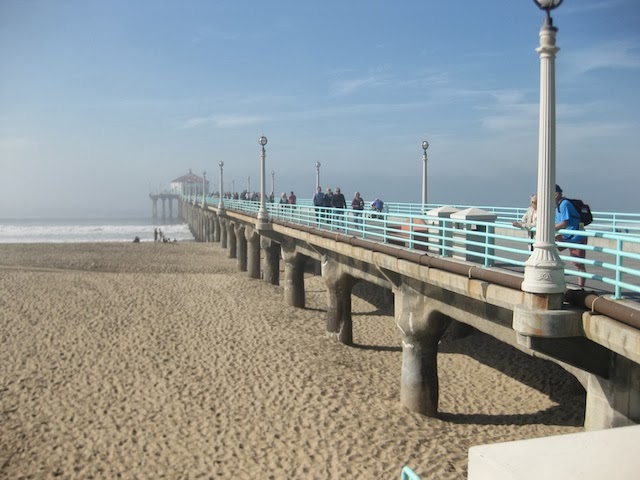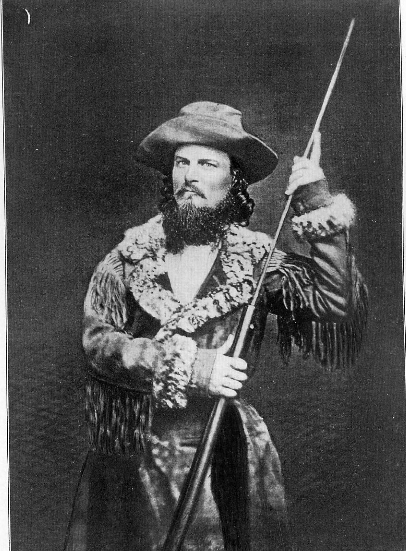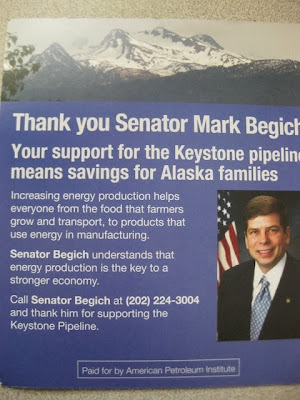B and I biked Saturday from the Marina del Rey along the beach path to the end near Palos Verdes. What a wonderful ride. Above are surfers from the Manhattan Beach pier.
I took this picture to show the surf board racks people have on their bikes. When I was growing up here, the boards were much bigger and heavier and if people had bike racks, they were trailers behind the bike. Another thing I noticed in this shot was how pale the surfers are. Wearing wetsuits definitely blocks the sun. These guys look like Alaskans under their wetsuits.
I liked the blue wave bike racks at the Manhattan Beach pier. But when we got back from walking on the pier about ten minutes, a lot more bikes were parked.
Here's the pier itself. There's a cafe and aquarium at the end. The
round house aquarium can't be very big, and even though the website calls it "Roundhouse Marine Studies Lab and Aquarium" it seems more like a tourist attraction than a science center. The website doesn't mention any research, but it does have a link for parties.
Further down was the Redondo Beach pier. It's full of tacky looking tourist shops and restaurants. I took the top picture on the way down. On the way back it was obscured a bit by fog. Strangely it was sunny the whole time, but if you looked ahead or back it was foggy. I think there was just light fog all the way and sometimes it got a little thicker then dissipated. It was probably in the high 60s.
Based on the
Seattle area's Audubon Birdweb pictures and description, this is a Heermann's Gull. I was eating a granola bar and it was clearly hoping I'd share.
The black feet and black tip of the orange beak give it away.
ABCBirds says:
 "Close to 95% of the entire world’s population of Heermann’s Gull nests in a single location: Isla Rasa, in the Gulf of California, Mexico, which supports
"Close to 95% of the entire world’s population of Heermann’s Gull nests in a single location: Isla Rasa, in the Gulf of California, Mexico, which supports
300,000 breeding birds. The island is protected by the Government of Mexico as a seabird sanctuary. The other nesting locations are islands along the coast of western Mexico; there are no sites where the species has successfully bred within the U.S. The bird undertakes a reverse migration, beginning in May, when non-breeders appear off the California coast, later to be joined by breeders. It moves as far north as Vancouver Island, British Columbia, before all but a few individuals head back south during the fall and winter."
I was curious about who Heermann was and finally
found a photocopy of seven pages of Cassinia - Proceedings of the Delaware Valley Ornithological Club, 1907, by Witmer Stone. Today it's posted on the Club's website, 106 years later.
He was born about 1818 in South Carolina, according to the text, and was trained as a medical doctor, but seems to have been more interested in ornithology. He came to California in 1849.
"Upon the organization of the Pacific Railroad survey parties Dr. Heermann obtained the appointment of surgeon and naturalist to Lieut. Williamson's party, which was to explore southern California with the object of finding available passes through the mountains by which the routes along the 32d and 35th parallels might reach the coast."
The proceedings say the gull is named after him and so is a song sparrow (Melospiza melodia heermanni). I found a Heermann's Kangaroo Rat while I was looking too that lives in California, but I couldn't document a connection to Heermann, but it's likely. Do look at the proceedings of the Ornithological Club for the whole story on Heermann. The author who tracked down the notes would have made a great blogger. And his piece on Heermann has made it on line now.
And if you want to know even more, I found that
Dr. Joel Weintraub
"will explore the life and accomplishments of
19th-century California naturalist Adolphus L. Heermann. You will learn
about the impact Adolphus had on the natural history of California"
at
Cal State University Fullerton, at Mackey Auditorium, on Feb. 24, 2014 from 10 am to 11:30 am. I think calling him "California naturalist" is a bit of a stretch. He did important work in California, but from the Delaware Club's publication, it seems he only spent a relatively short part of his life in California.
Moving along on our bike ride - not necessarily in chronological order - we also rode by the Chevron refinery in El Segundo. [Note: as you go through the following on Chevron's property taxes, you'll see I missed a key point, then found it. I leave it in so you can see the process of my thinking and writing on this, not just the cleaned up (and possible still erroneous) final version.]
I wouldn't have known it was Chevron - there was nothing that said it was - except that B pointed it out to me. He said the massive wall with spikes on top was new.
From Chevron's El Segundo website:
"We've been a part of this community since 1911 when the main product produced was kerosene for lamps. In fact, the City of El Segundo (Spanish for "the Second") was named after the refinery, then Standard Oil's second in California. Today, the El Segundo Refinery provides jobs for more than 1,100 Chevron employees and 500 contractors, covers approximately 1,000 acres, has more than 1,100 miles of pipelines, and is capable of refining 290 thousand barrels of crude oil per day. Transportation fuels -- gasoline, jet and diesel -- are the primary products refined from the crude oil. We are responsible caretakers of our land and the environment, we operate our own electricity, steam, and water treatment facilities, and even maintain one of the only two remaining preserves in the world for the endangered El Segundo Blue Butterfly. "

Previously it only had a chain link fence, he said. And eventually the medieval fortress wall ended and the old fence began.
From
KOLO 8 TV, April 18, 2013:
SAN FRANCISCO (AP) - Tests of pipe samples from Chevron Corp.'s refinery in El Segundo found corrosion to an extent similar to the pipe that failed and caused a large fire at the company's Richmond facility.
The federal Chemical Safety Board and California Division of Occupational Safety and Health issued a report Thursday that found up to 60-percent wall loss in a pipe at Chevron's El Segundo refinery that processes the same type of crude.
Chevron voluntarily inspected pipes at its El Segundo crude unit after the Aug. 6 fire in Richmond caused by a corroded old pipe.
There's also a lawsuit over Chevron's tax deal with the city of El Segundo. One can imagine the kind of influence Chevron has on this town. Here's a snippet from a
Daily Breeze article in October 14, 2012:
A county civil grand jury is looking into El Segundo's decision to negotiate tax deals with the Chevron oil refinery, including a 1994 pact over utility-users' taxes that has come under scrutiny in recent months.
Members of the grand jury last month interviewed former City Manager Doug Willmore, who was fired in February and alleges his ouster came in retaliation for proposing that Chevron pay higher taxes. Willmore said he met for more than two hours with five members of the volunteer grand jury.
A followup article on April 23, 2013 article says they negotiated a deal:
"El Segundo city leaders this week finalized a deal with the Chevron oil refinery that will yield an estimated $128 million in net new revenues over the next 15 years, bringing negotiations over the company's tax payments to a close.
The City Council on Tuesday passed the so-called tax resolution agreement on a 4-1 vote, with little discussion. Councilman Dave Atkinson was opposed. . ."
Look at the dates. This deal was reported April 23, 2013 as having happened "this week." Above, the KOLO report on the pipeline corrosion was on April 18, 2013, just a few days before. But KOLO is in Reno. I can't find any coverage in the Daily Breeze on that
until July 15, 2013. (That doesn't mean it wasn't reported, only that I can't find it. But I did several google searches and searched the Daily Breeze website.) Just find it curious they didn't report it when many other outlets far from them did. And the July 15 article was from the Contra Costa newspaper which is in the San Francisco Bay area.
And $128 million over a 15 year period? That comes to a little less than $1.9 million a year for 1000 acres (according to Chevron's website, cited above) of prime Southern California waterfront property. When you get to Manhattan Beach, Hermosa Beach, and Redondo Beach just past the refinery, the beachfront is lined with million dollar houses.
From
eConsultant, we get this:
Place: Hermosa Beach, CA
Population: 129,251
Median Home Price: $1,200,000
Average Property Taxes: $5,884 (2006)
Assuming four properties per acre - just a for a rough estimate - that would be over $20,000 of taxes per acre. Chevron has 1000 acres. That would come to $20,000,000 in property taxes per year. Times 15 years, it would $300,000,000. And they worked out a deal for $28,000,000 over 15 years.
One could argue that the Chevron land wouldn't be worth that much. Who would want to build on top of a former oil refinery? But that only tells us how much Chevron has cost this area. What would it cost to clean up the land?
Maybe there's something I'm missing, but it sounds like Chevron's got a great deal going. This is just a quick and dirty calculation, but if I lived in El Segundo, I'd want to check this out further.
As I looked more carefully, there was something I was missing - the $128 million is "net new revenues," but the article isn't totally clear on how much this will be. There's this sentence later on in the piece:
"Chevron's first-year base payment totals $11.1 million - a figure that
reflects its 2012 taxes with more than $5 million in added funding. "
Does that mean it's $11 million including the added $5 million? That's still lower than the $20 million a year I estimated - but my numbers are just back of the envelope calculations and I'm sure people in El Segundo could explain the difference.
And in Hermosa Beach, there were lots of those million dollar homes with these banners on them.
Here's a snipped from the
StopHermosaBeachOil website:
A few facts: The proposed drill site is located four blocks from the beach on Valley Drive, surrounded by family homes, small businesses, beautiful South Park and our iconic Green Belt. From this site, the oil company seeks to drill, produce, and process up to 8,000 barrels of oil and 2.5 million cubic feet of natural gas per day. The company plans to directionally drill in all directions under homes and below the sea floor to the one-mile boundary of tideland that the City holds in trust for the benefit of the People of California. The oil company’s proposition is, essentially, to plant an “offshore” oil rig four blocks inland from the beach.
Our website provides well-researched information, citing source documents, which we view as fundamental to helping our community reach a well-informed and educated decision about the prospect of drilling in Hermosa Beach.
It is our belief that the City’s ban on oil drilling, which voters studied and wisely adopted in 1932, 1958, and once again in 1995, and which the California Court of Appeals unanimously upheld in 2001, remains our best assurance to secure the welfare of our community and avoid the grave risks inherent in any oil drilling operation.
The company that wants to drill the oil is privately owned E&B Natural Resources and here's what
Business Week says about their President.
Mr. Steve Layton has been the President at E&B Natural Resources Management Corporation since 2000. Mr. Layton joined E & B Natural Resource Management Corporation in 1983. In 1983, he Layton co-founded Alma Energy and Equinox Oil. He served as President of Alma and Equinox from 1997 to 2000. In November 2000, he purchased the Alma and Equinox assets out of bankruptcy and formed E & B Natural Resource Management Corporation. Mr. Layton has been active in the Independent Petroleum Association of America, Louisiana Independent Oil and Gas Association, and the California Independent Producers Association. He served as President of the National Stripper Well Association and a member of the National Petroleum Council. He has been appointed to the Interstate Oil and Gas Compact Commission by Texas Governors Richards, Bush and Perry. Mr. Layton holds BS and MBA from University Of Tulsa.
And as we were getting back to the Marina where B parked the car - it was about a 25 mile round trip bike ride and B didn't want to push his back more than that - we got to the rise where people were taking beginning hang gliding classes. Fortunately - given how long this post is already - I thought I pushed the button to video tape the flight, but it didn't go on until I 'stopped' the video which got a picture of dirt before I shut off the camera.
If you click on the picture, you can read the poster on the hang gliding classes. And, if the lessons don't go well, at the end of the trail, where we saw the Heermann's gull, you can get a beach wheel chair.
This post got way out of hand. But I think it also is revealing about how much we don't see when we wander around places. Just trying to get a little background about the things we saw led me to all sorts of (I would say interesting, but you can fill in your own adjectives) things. It's a reminder to me that everything is more than it seems on the surface.
































